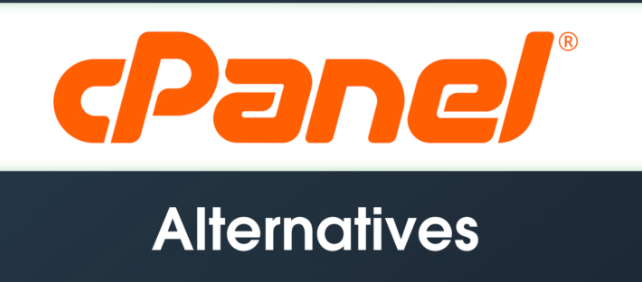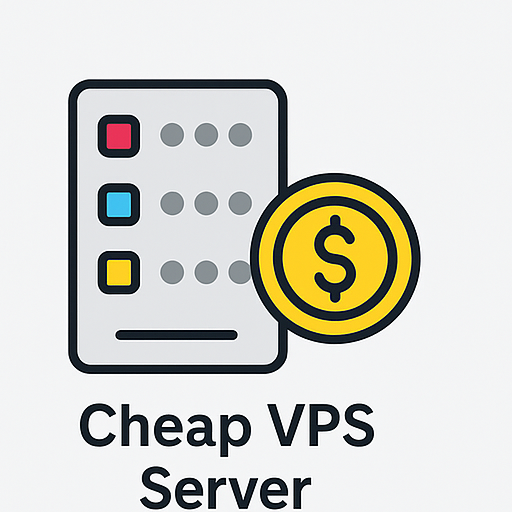
In this guide, we’ll explore a selection of free cPanel alternatives, each with its own unique features, target audience, and advantages. Whether you’re a seasoned system administrator, a burgeoning developer, or a small business owner seeking a user-friendly hosting solution, there’s likely an alternative that fits your requirements. From open-source platforms to lightweight panels designed for simplicity, this comprehensive overview aims to assist you in finding the perfect control panel to suit your hosting needs.
. 10 Best Free cPanel Alternatives

Uygun fiyatlı VPS barındırmasına ihtiyacım var
Aylık 3.99 $ 'dan başlayan
⚡ Hızlı teslimat | 🏅 25+ Veri Merkezleri
- Ajenti Who is it for? Ajenti caters to small to medium-sized businesses and individual users seeking a lightweight, user-friendly control panel solution. Pros:
- User-friendly Interface: Ajenti offers an intuitive interface, making it easy for users to navigate and manage their servers.
- Lightweight: Known for its minimal resource footprint, Ajenti is suitable for systems with limited resources.
- Multi-server Management: It supports managing multiple servers from a single dashboard, enhancing scalability. Cons:
- Limited Third-party Integration: Ajenti may lack integration with some third-party applications and services.
- Feature Limitations: May lack some advanced features found in paid alternatives.
- CentOS Web Panel Who is it for? CentOS Web Panel is ideal for users familiar with CentOS and seeking a comprehensive control panel solution. Pros:
- CentOS Integration: Seamlessly integrates with CentOS, leveraging its stability and security features.
- Extensive Features: Offers a wide range of features, including mail server management, file management, and database administration.
- Active Community: Supportive community for assistance and resources. Cons:
- Complex Setup: Can be complex to configure.
- Technical Requirement: Requires technical proficiency.
- Froxlor Who is it for? Froxlor targets system administrators and hosting providers seeking an open-source, modular control panel solution. Pros:
- Open-source: Customizable with community contributions.
- Modular Design: Extendable functionality.
- Multiple PHP Versions: Supports various PHP versions. Cons:
- Learning Curve: Requires time to understand its architecture.
- Feature Set: Lacks some advanced features.
- ISPConfig Who is it for? ISPConfig is best suited for experienced users managing multiple servers or hosting providers offering services to clients. Pros:
- Multi-server Management: Centralized server control.
- Comprehensive Feature Set: Includes DNS management, e -posta, and website configuration.
- Active Development: Regular updates and improvements. Cons:
- Complex Setup: Can be challenging for beginners.
- Technical Complexity: Deep understanding of server concepts is needed.
- Vesta CP Who is it for? Vesta CP targets developers and small businesses seeking a simple yet powerful control panel solution. Pros:
- Ease of Use: Intuitive interface.
- Multi-server Support: Hosts websites across multiple servers.
- Security Features: Includes firewall and SSL certificate management. Cons:
- Limited Scalability: Not ideal for large-scale deployments.
- Feature Set: Missing some enterprise-grade features.
- Webmin Who is it for? Webmin is recommended for Linux system administrators and enthusiasts seeking a highly configurable control panel solution. Pros:
- Highly Configurable: Extensive customization.
- Extensive Documentation: Well-documented support.
- Modular Architecture: Supports plugins. Cons:
- Learning Curve: Not beginner-friendly.
- Command-line Interaction: Advanced tasks may require CLI.
- YunoHost Who is it for? YunoHost targets individuals and small organizations seeking self-hosted solutions for web hosting, e -posta, and applications. Pros:
- Integrated Apps Ecosystem: Simplifies app deployment.
- User-friendly Interface: Accessible to non-technical users.
- Community Support: Active support forum and documentation. Cons:
- Limited Advanced Configurations: Less flexibility.
- Feature Scope: Basic feature set.
- CyberPanel Who is it for? CyberPanel is designed for developers, SMBs, and hosting providers seeking a lightweight and feature-rich control panel. Pros:
- LiteSpeed Web Sunucusu: High performance.
- One-Click Installer: Easy app deployment.
- Integrated Email Services: Built-in mail management.
- Security Features: ModSecurity, SSL/TLS support.
- Cloud Integration: Works with AWS, Google Cloud, Dijital. Cons:
- Learning Curve: May require time to master.
- Teknik Destek: Limited official support.
- ZPanel Who is it for? ZPanel is for SMBs and individuals looking for a free, open-source control panel. Pros:
- Open-source: Fully customizable.
- User-friendly Interface: Easy to use.
- Comprehensive Features: Web, e -posta, and file management. Cons:
- Güvenlik: Some concerns due to outdated development.
- Destek: Community-driven, limited official resources.
- No Control Panel Who is it for? Ideal for advanced users preferring full manual server management. Pros:
- Full Control: No restrictions.
- No Third-party Dependencies: Complete autonomy. Cons:
- Steep Learning Curve: Requires advanced knowledge.
- Time-consuming: Manual configuration and updates.
Table of Comparison
| Alternative | Target Audience | Pros | Cons |
|---|---|---|---|
| Ajenti | SMBs, individual users | User-friendly, hafif, multi-server | Limited integration, fewer features |
| CentOS Web Panel | CentOS-experienced users | Deep CentOS integration, full feature set | Complex setup, technical skill required |
| Froxlor | Admins, hosting providers | Open-source, modular, PHP version support | Steep learning curve, limited features |
| ISPConfig | Advanced users, hosting providers | Multi-server, DNS/email/website tools | Challenging setup, complex to manage |
| Vesta CP | Developers, small businesses | Basit, multiple servers, security options | Low scalability, fewer advanced features |
| Webmin | Linux admins, power users | Highly configurable, extensive documentation | Steep learning curve, CLI for advanced tasks |
| YunoHost | Individuals, small orgs | App ecosystem, intuitive UI, community | Basic feature set, lacks advanced customization |
| CyberPanel | Developers, SMBs, hosting providers | LiteSpeed, e -posta, app installer, cloud support | Learning curve, limited support |
| ZPanel | SMBs, individual users | Open-source, easy to use, full feature set | Security concerns, minimal official support |
| No Control Panel | Experienced system administrators | Total control, no third-party reliance | Difficult setup, manual maintenance |
Which cPanel alternative is right for me? Choosing the right alternative depends on various factors, including your specific hosting requirements, technical expertise, and preferences. Beginners or users seeking simplicity may prefer options like Ajenti or Vesta CP, while experienced administrators may opt for more feature-rich solutions like CentOS Web Panel or ISPConfig. Consider your long-term scalability needs and the level of customization required when making your decision.

